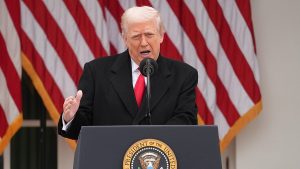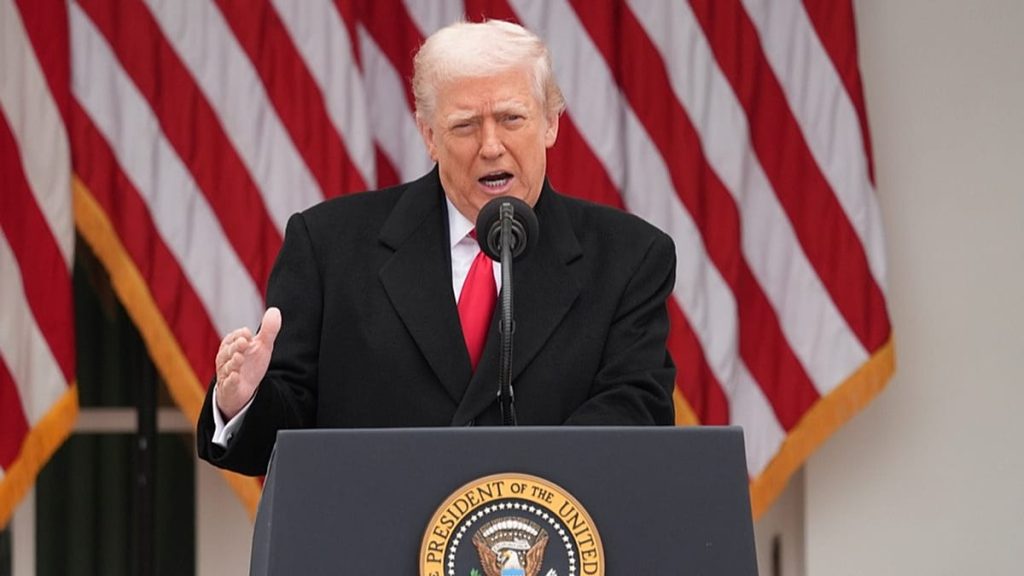The situation in Lebanon remains incredibly delicate, poised between potential stability and renewed conflict. Recent developments, including escalating tensions between the Lebanese Army and the United States, coupled with ongoing Israeli strikes and the contentious issue of Hezbollah’s disarmament, paint a complex picture. This article delves into the current state of affairs, analyzing the pressures facing Lebanon and the implications for its future. The core of the issue revolves around نزع سلاح حزب الله (Hezbollah’s disarmament) and the increasingly fraught relationship with international actors.
تهاني ترامب في ظلّ توترات متصاعدة (Trump’s Greetings Amidst Escalating Tensions)
Former US President Donald Trump recently extended greetings to Lebanon on the 82nd anniversary of its independence, expressing hope for increased stability and economic prosperity. In his message, Trump praised the “bold decisions” taken by the Lebanese government and affirmed a desire to strengthen bilateral partnerships. However, this seemingly positive gesture is overshadowed by a growing crisis, particularly concerning the implementation of a disarmament plan for Hezbollah. The timing of the message highlights the stark contrast between diplomatic overtures and the harsh realities on the ground. This situation underscores the importance of الوضع السياسي في لبنان (the political situation in Lebanon) and the need for careful navigation.
الضغط الأمريكي لخطة نزع السلاح (American Pressure for the Disarmament Plan)
Washington is intensifying its pressure on the Lebanese government to proceed with a plan to disarm Hezbollah. This push comes amidst rising fears of a direct confrontation between the Lebanese Army and the party, a scenario that could plunge the country into further chaos, given its existing political and sectarian divisions. The Lebanese Army was officially tasked with disarming Hezbollah following Israeli and American demands.
انتشار الجيش في الجنوب وتفكيك البنى العسكرية (Army Deployment in the South and Dismantling of Military Infrastructure)
Since September, the army has been bolstering its presence in the South and has begun dismantling Hezbollah’s military infrastructure south of the Litani River, approximately 30 kilometers from the Israeli border, as mandated by the government’s plan. Despite maintaining a more assertive tone towards Israel recently, both President Joseph Aoun and Prime Minister Najib Mikati continue to emphasize their commitment to a diplomatic resolution. However, the implementation of نزع سلاح حزب الله is proving to be a significant challenge.
ضربات إسرائيلية مستمرة وتصاعد الخسائر المدنية (Continued Israeli Strikes and Rising Civilian Casualties)
Despite a ceasefire agreement in place since November 27, 2024, Israel continues to carry out strikes within Lebanon, claiming to target Hezbollah and Hamas sites. According to the UN High Commissioner for Human Rights, these Israeli attacks have resulted in the deaths of at least 127 civilians since the agreement came into effect. Hezbollah, for its part, firmly rejects any attempts to disarm it. This ongoing cycle of violence further complicates the already fragile الأمن في لبنان (security in Lebanon).
توترات حادة بين الجيش اللبناني والولايات المتحدة (Sharp Tensions Between the Lebanese Army and the United States)
Recently, the relationship between the Lebanese Army and the United States has become unusually strained. Army Commander Rudolph Hokayem cancelled a planned visit to Washington amidst heightened tensions in the South. Reports suggest that the US cancelled the visit due to the army’s perceived “tough” stance towards Israel.
The tension became particularly evident in a statement released by the military following an Israeli shooting incident involving UNIFIL personnel on Sunday. The army accused Israel of undermining stability and sovereignty in Lebanon.
ردود فعل أمريكية غاضبة (Angry American Reactions)
This statement drew sharp criticism from US Senators. Lindsey Graham, on X (formerly Twitter), stated that the Lebanese Army Chief of Staff, due to his rhetoric and perceived lack of effort in disarming Hezbollah, represents a significant setback to the efforts aimed at advancing Lebanon. He even suggested that the Lebanese Armed Forces were no longer a “good investment” for the US. Senator Joni Ernst echoed these sentiments, labelling the army’s statement “disappointing” and asserting that Israel offered Lebanon a “real opportunity to free itself from Iranian-backed Hezbollah terrorists.” The future of US support for the Lebanese Armed Forces is now clearly in question, potentially further exacerbating the delicate الاستقرار الإقليمي (regional stability).
الخلاصة: مستقبل غامض للبنان (Conclusion: An Uncertain Future for Lebanon)
Lebanon finds itself at a critical juncture, facing immense internal and external pressures. The demand for نزع سلاح حزب الله remains a central point of contention, complicated by ongoing Israeli hostilities and increasingly strained relations with the United States. Trump’s message, while hopeful in tone, feels distant from the grim reality on the ground. The cancellation of the army chief’s visit to Washington signals a deepening crisis in Lebanese-American relations, potentially threatening vital security assistance.
Moving forward, it is crucial for Lebanese leaders to prioritize dialogue, uphold national sovereignty, and seek a comprehensive solution that addresses the root causes of the conflict. The international community, including the US and Israel, must also exercise restraint and engage in constructive diplomacy to prevent further escalation and support Lebanon’s path towards lasting peace and stability. The situation demands careful consideration and proactive engagement from all stakeholders to avoid a catastrophic outcome.



